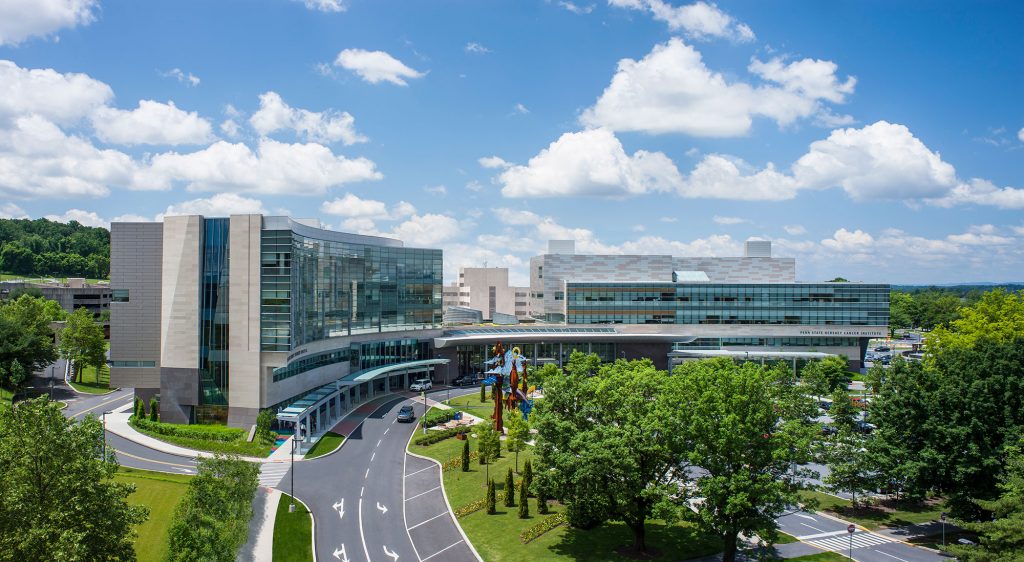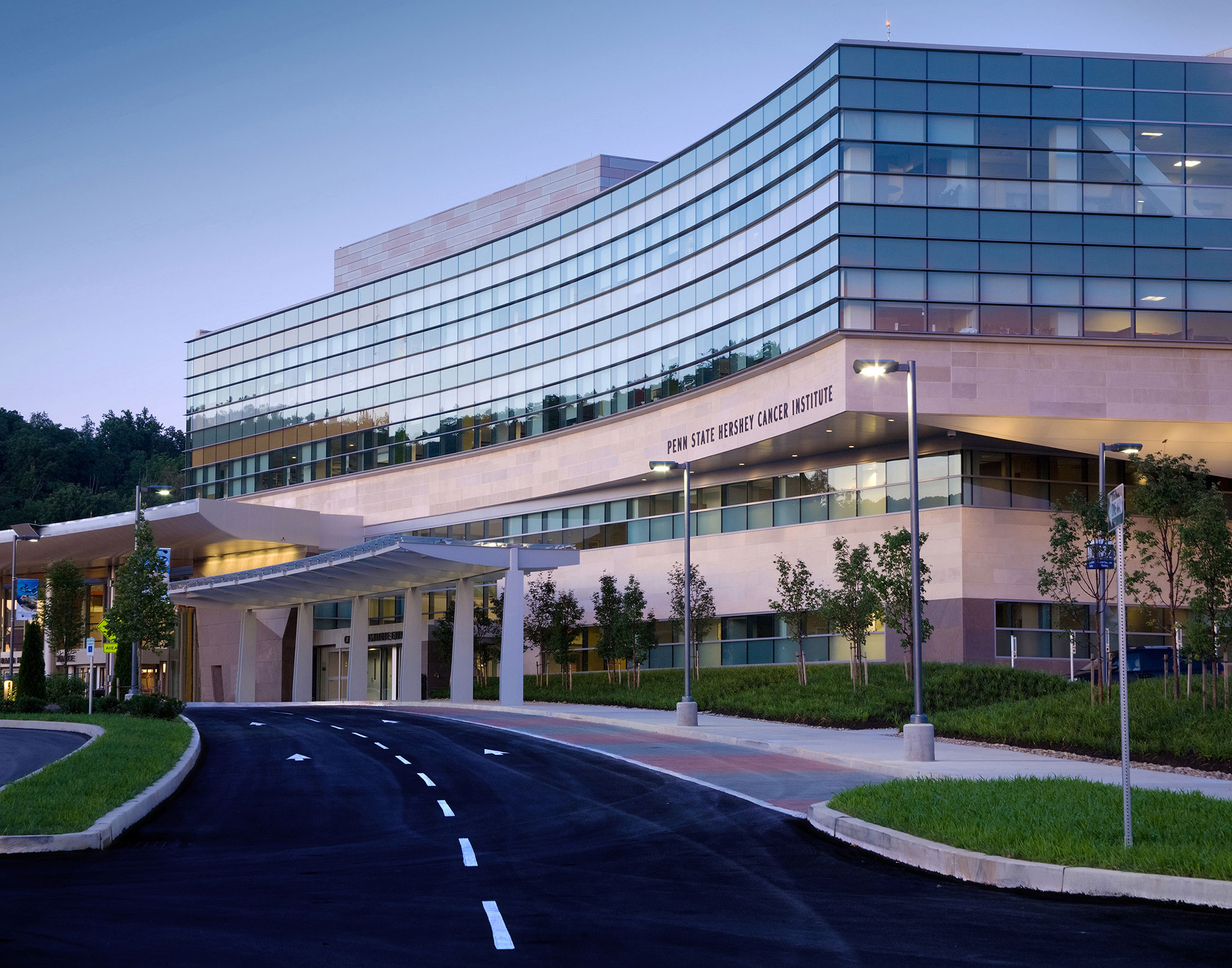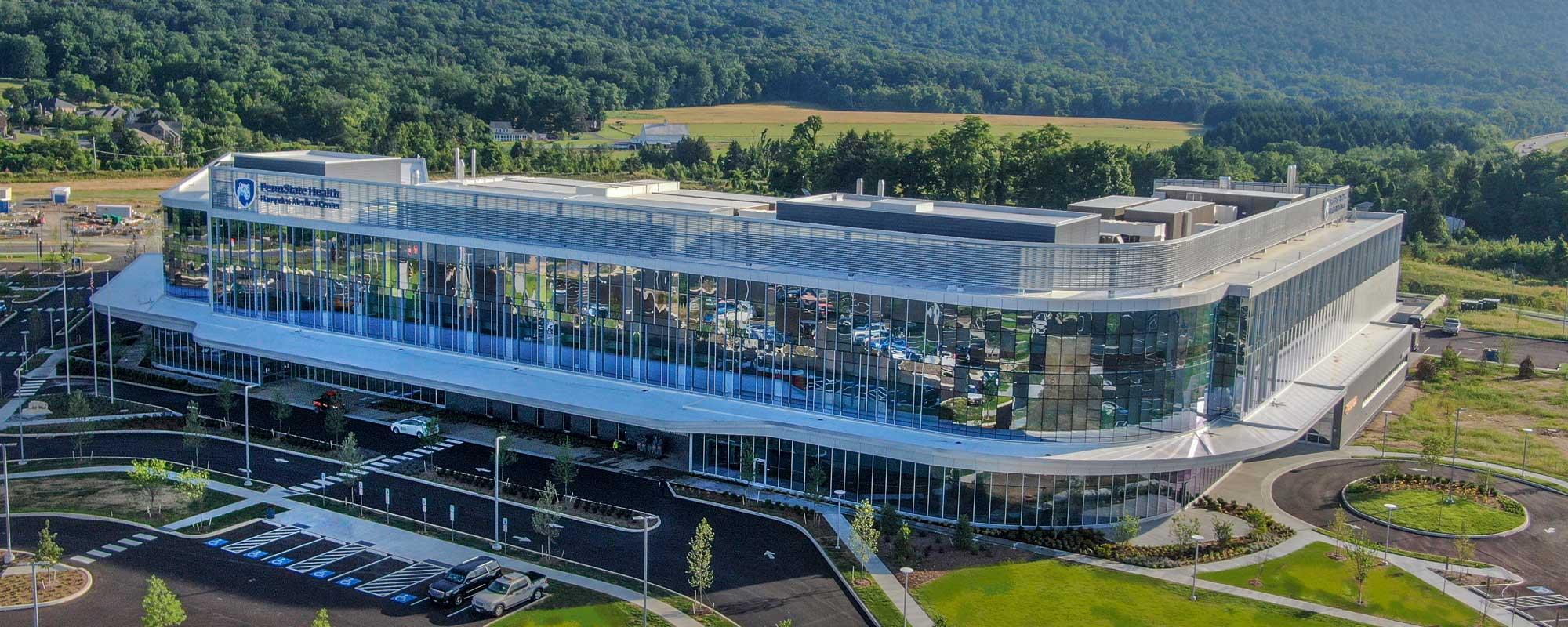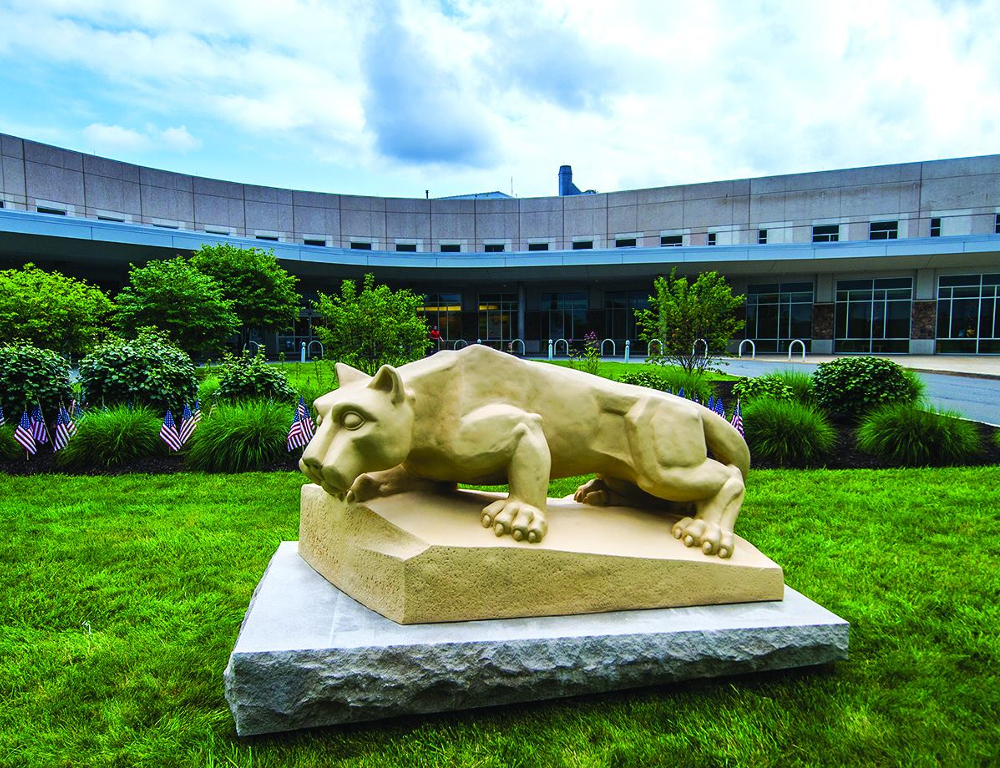Jump to topic
Search
Program Details
The Head and Neck Oncology Fellowship covers the breadth of head and neck surgical oncology, including aerodigestive malignancies, salivary gland benign and malignant masses, head and neck cutaneous malignancies, skull base cancers and endocrine disease.
A highlight of the fellowship is an integrative approach to endocrine surgical pathology that incorporates both otolaryngology surgeons and endocrine surgeons.
The fellowship incorporates a multidisciplinary approach to all aspects of head and neck oncology and provides a robust experience in reconstruction, including microvascular reconstruction, local and pedicled flaps and orbital reconstruction.
Learn More about the Fellowship
The fellow will have clinical responsibilities, including three to three and a half days in the operating room, one day of clinic and half a day to one day of academic or administrative time.
Surgical responsibilities will include serving as the primary surgeon or supervising surgeon for ablative head and neck surgical cases and endocrine cases depending on the complexity of the case and overall training progression of the fellow.
For reconstructive and skull base cases, the fellow will serve as a first assist and training surgeon in the beginning of the fellowship and transition to the primary or supervising surgeon near the end of the training. Open and endoscopic skull base cases will follow a similar graduated experience for the fellow.
Interested applicants should apply through the American Head and Neck Society (AHNS).
The typical application period extends from December to March of the academic year, two years prior to the fellowship; for instance, applications for fellowships starting July 2023 will apply in 2021-2022.
Virtual Tour
Penn State Health
Penn State Health is an integrated academic health system serving patients and communities across 15 counties in central Pennsylvania. It employs more than 20,900 people systemwide.
The system includes Penn State Health Milton S. Hershey Medical Center, Penn State Health Children’s Hospital and Penn State Cancer Institute based in Hershey, Pa.; Penn State Health Hampden Medical Center in Enola, Pa.; Penn State Health Holy Spirit Medical Center in Camp Hill, Pa.; Penn State Health Lancaster Medical Center in Lancaster, Pa.; Penn State Health St. Joseph Medical Center in Reading, Pa.; Pennsylvania Psychiatric Institute, a specialty provider of inpatient and outpatient behavioral health services, in Harrisburg, Pa.; and 2,417 physicians and direct care providers at 225 outpatient practices. Additionally, the system jointly operates various healthcare providers, including Penn State Health Rehabilitation Hospital, Hershey Outpatient Surgery Center and Hershey Endoscopy Center.
In 2017, Penn State Health partnered with Highmark Health to facilitate creation of a value-based, community care network in the region.
Penn State Health shares an integrated strategic plan and operations with Penn State College of Medicine, the University’s medical school. With campuses in State College and Hershey, Pa., the College of Medicine boasts a portfolio of more than $150 million in funded research and more than 1,700 students and trainees in medicine, nursing, other health professions and biomedical research.
Learn more about Penn State Health

Penn State Health Children’s Hospital (left), Penn State Health Milton S. Hershey Medical Center (center) and Penn State Cancer Institute (right)
Penn State Health Milton S. Hershey Medical Center
500 University Dr., Hershey, Pa., 17033 (Derry Township, Dauphin County)
- The health system’s 611-bed flagship teaching and research hospital
- The only medical facility in Pennsylvania accredited as both an adult and a pediatric Level I (highest-level) trauma center
- Dedicated surgical, neuroscience, cardiovascular, trauma and medical intensive care units
- Accredited Life Lion critical-care transport providing more than 1,100 helicopter and approximately 750 ground ambulance transports per year
- More than 1,300 faculty members and more than 650 residents and fellows
- Approximately 29,000 admissions, 73,000 emergency department visits, 1.1 million outpatient visits and 33,000 surgical procedures annually
- Designated as a Magnet hospital since 2007
Learn more about Milton S. Hershey Medical Center
Penn State Health Children’s Hospital
600 University Dr., Hershey, Pa. 17033 (Derry Township, Dauphin County)
- An eight-story, 263,000-square-foot-facility built in 2013 and expanded in 2020
- 160 licensed pediatric beds, 26-bed pediatric intensive care unit and a 56-bed neonatal intensive care unit
- Level IV (highest-level) neonatal intensive care unit
- Level I quaternary (highest-level) pediatric intensive care unit
- Level I (highest-level) pediatric trauma center designation
- Intermediate care unit
- Dedicated pediatric operating rooms
- More than 150,000 pediatric outpatient visits, 20,000 pediatric emergency room visits, and approximately 5,000 pediatric patient discharges annually
Learn more about Penn State Health Children’s Hospital

Penn State Cancer Institute
Penn State Cancer Institute
400 University Dr., Hershey, Pa., 17033 (Derry Township, Dauphin County)
- The region’s only comprehensive cancer center
- Clinical services offered at the institute in Hershey, Pa., as well as in State College, Pa. (in partnership with Mount Nittany Health) and Reading, Pa., at Penn State Health St. Joseph
- Five floors, with ground level and first two devoted to patient care and top two housing research labs
- Infusion therapy suites, private chemotherapy rooms and a state-of-the-art radiation oncology suite
- Dedicated chemotherapy and infusion pharmacy
Learn more about Penn State Cancer Institute

Hampden Medical Center
Penn State Health Hampden Medical Center
2200 Good Hope Road, Enola, Pa., 17025 (Hampden Township, Cumberland County)
- 120-private-inpatient-bed hospital on the West Shore that opened to patients in October 2021
- Three-story, 300,000-square-foot facility designed to provide acute care and outpatient services
- Provides expert 24/7 emergency medical care, inpatient and outpatient medical and surgical care, and labor and delivery services (opening in late 2021)
Learn more about Hampden Medical Center

Penn State Health St. Joseph Medical Center
Penn State Health St. Joseph
2500 Bernville Road, Reading, Pa. 19605 (Bern Township, Berks County)
- A two-campus community medical center in Berks County (southeastern Pennsylvania), with an acute care hospital in Bern Township and a downtown Reading campus
- Approximately 1,800 employees, including 400 board-certified and fellowship-trained physicians in all specialties
- Nationally accredited centers for chest pain, stroke, heart failure and cancer care
- Roughly 47,000 emergency department visits and 7,500 inpatient admissions annually
Welcome to Hershey
More About Hershey
Interested in learning more about living and working in Hershey, Pa.? See details here:
Wellness, including emotional, spiritual, social and physical health, is a crucial component to training and to becoming a professional, compassionate and resilient physician. Self-care is a skill which must be continually practiced and reinforced. Penn State College of Medicine and Penn State Health are committed to addressing wellness among residents and fellows, with multiple resources readily available.
Institutional resources
- Visit BeWell – a health program designed to support Penn State Health employees
- See Penn State College of Medicine wellness resources here
- Employee Health Care Concierge and Case Management Service
- Partners in Medicine
Moving to a new city with your family does not have to be stressful. Residency programs have assisted many significant others with finding employment. There is also a GME-Wide Partners in Medicine (PIM) group that offers networking opportunities as well as various social and community oriented activities. - The Doctors Kienle Center for Humanistic Medicine
- Active and easily accessed Office of Professional Mental Health
Graduate medical education resources
Institutional Resources
Penn State Health and Penn State College of Medicine celebrate, embrace and support the diversity of all patients, faculty, staff, students and trainees.
Office for Diversity, Equity and Inclusion
In keeping with this, Penn State Health has an active Office for Diversity, Equity and Inclusion with various programs, networks and resource groups, including:
- Talks and lectures on diversity, equity and inclusion through the Inclusion Academy
- Regular events on topics such as eradicating racism and creating a culture of inclusiveness
- Many Business Employee Resource Groups (BERGs), including:
- Disability Business Employee Resource Group
- Interfaith Business Employee Resource Group
- LGBTQ+ Business Employee Resource Group
- Military and Veterans Business Employee Resource Group
- Multicultural Business Employee Resource Group
- NextGen Business Employee Resource Group
- Black Physician Professional Staff Association – Resource Group
- Hispanic Professional Association
- Asian Physician and Professional Staff Association
- International Workforce Inclusion
- Inclusion Academy
Learn more about the Penn State Health Office for Diversity, Equity and Inclusion
Learn more about the College of Medicine’s Office for Diversity, Equity and Belonging
Office for Culturally Responsive Health Care Education
The vision at Penn State College of Medicine and Penn State Health is to equip learners with the knowledge, skills and attitudes they will need to provide culturally excellent health care and research for an increasingly diverse U.S. population. The Office for Culturally Responsive Health Care Education was formed to help meet that goal.
Learn more about the Office for Culturally Responsive Health Care Education
Office for a Respectful Learning Environment
In addition, the institution does not tolerate discrimination, biases, microaggression, harassment or learner mistreatment of any kind, and any concerns are immediately addressed by the Office for a Respectful Learning Environment.
Learn more about the Office for a Respectful Learning Environment
Network of Under-represented Residents and Fellows
The Network of Under-represented Residents and Fellows (NURF) is a group of diverse residents and fellows representing all specialties. NURF’s goal is to promote cultural diversity in the residency programs through community involvement, mentorship with diverse faculty, professional networking and support for the recruitment of diverse medical students into the residency programs.
NURF is sponsored by the Penn State College of Medicine Graduate Medical Education Office and the Penn State Health Office for Diversity, Equity and Inclusion.
Latest News from Otolaryngology

Latest News from Penn State Cancer Institute







